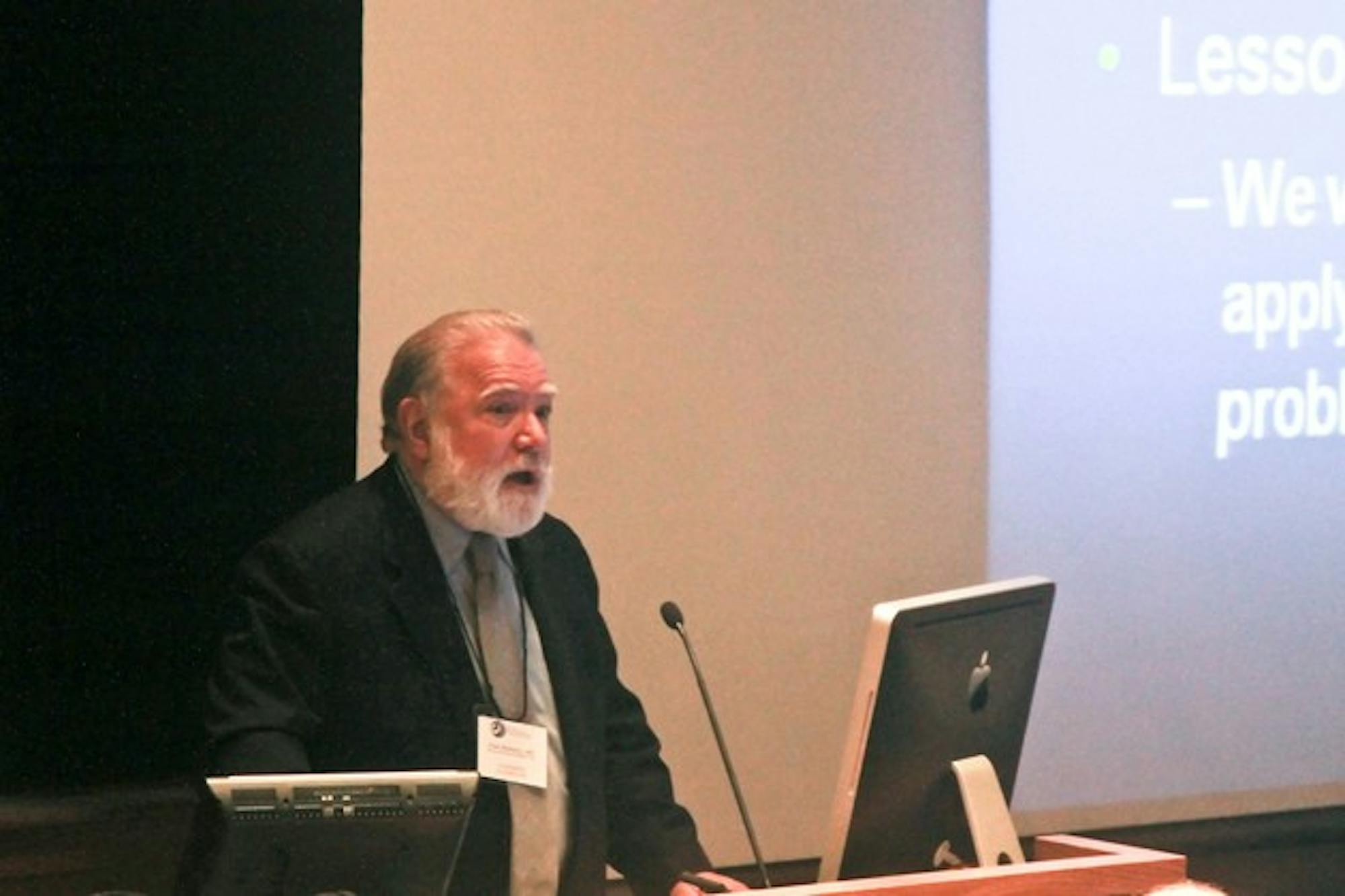Almost nine million children under the age of five die of avoidable and treatable illnesses each year, according to Dartmouth Medical School professor John Butterly, executive medical director of Dartmouth-Hitchcock Medical Center. Butterly, along with other global health experts, discussed how to address child mortality and other international health concerns at the sixth-annual Great Issues in Medicine and Global Health Symposium, a three-day program at DHMC that began Wednesday.
At the symposium's first event, the lecture and panel discussion "Silent Emergencies: What is Killing Our Children," three experts in the field of global health spoke on the major diseases and social issues affecting the health of children worldwide.
Butterly, who moderated the event, said that although the rate of avoidable mortality has declined since 1992, the rate is still much higher than it should be.
"How would we respond if just one child died of an avoidable death in Hanover?" Butterly said.
Neonatal disorders, diarrheal diseases and respiratory illnesses such as pneumonia cause the vast majority of deaths in children, Butterly said. He also said that under-nutrition plays a large role in fatalities caused by these illnesses.
Stephen Atwood '68 DMS '70, a former UNICEF official and current professor of global health at Thammasat University in Bangkok, emphasized the importance of women's health and nutrition in relation to children's health.
Atwood described the effect of a mother's health and nourishment on the birth weight of the child. There is a correlation, he said, between birth weight and a child's later cognitive development and overall health.
Atwood largely focused on the social issues that impact women's health, such as under-nourishment, poor access to health care, high fertility, high rates of unwanted pregnancies and limited availability of contraception. He stressed the important role non-medical experts such as economists, politicians and anthropologists should play in addressing these issues.
"Health is too big a subject for health people," Atwood said. "If we are going to solve these problems, we have to look outside the health community."
George Little spoke about one of his current projects, Helping Babies Breathe, which works to educate health providers, particularly in the developing world, about neonatal resuscitation. Little said he hopes such education will help reduce the infant mortality rate due to asphyxia, when a newborn dies from insufficient oxygen intake.
Jeffrey Sturchio, president and CEO of the Global Health Council, discussed recent successes and issues that still need to be addressed in global health.
"It comes down to political will," Sturchio said, "The solutions that will be most effective will be multi-sectoral."
It is often difficult to motivate donors to give money to "silent emergencies," Butterly said in an interview with The Dartmouth before the event. The term "silent emergencies" describes illnesses that do not get as much public attention as HIV/AIDS, tuberculosis and malaria, but are also devastating to the world's population, Butterly said.
"These are public health social issues they are not really medical issues," he said. "You would have to ask Bono why he pays more attention to HIV/AIDS and not diarrhea."




